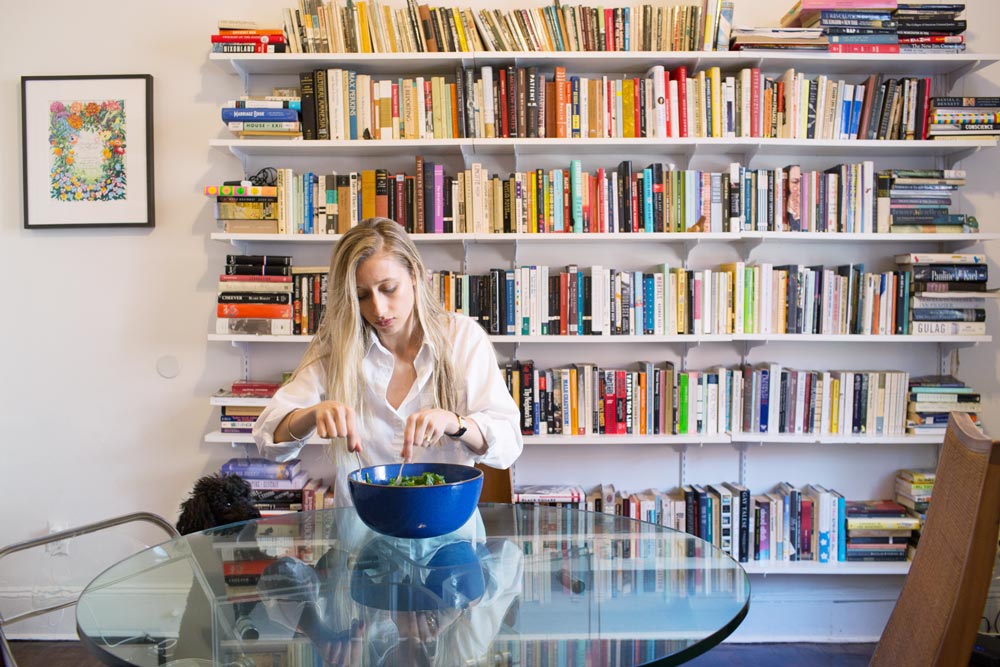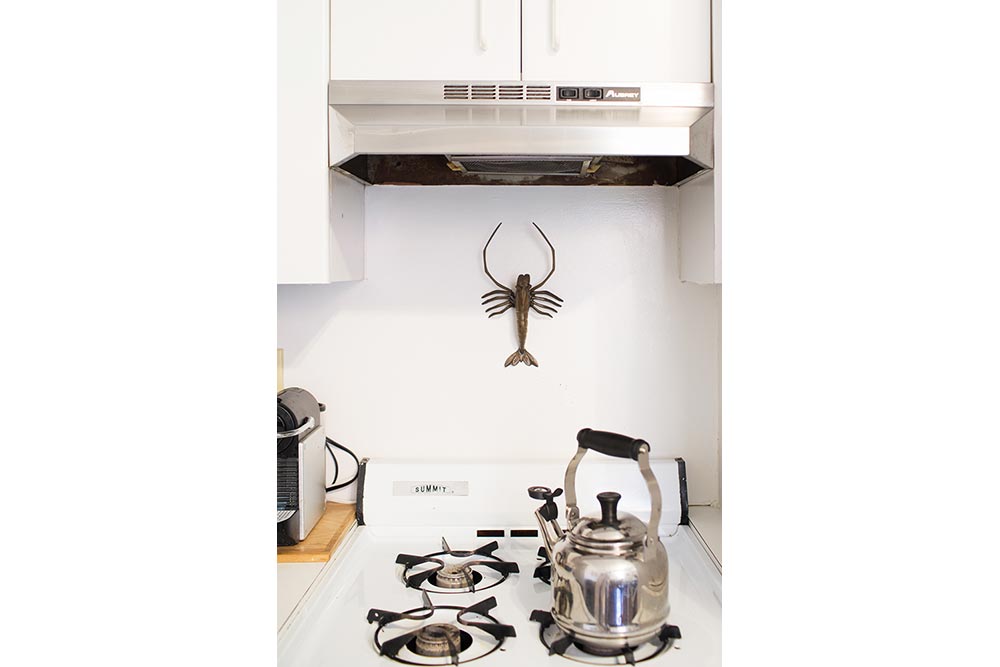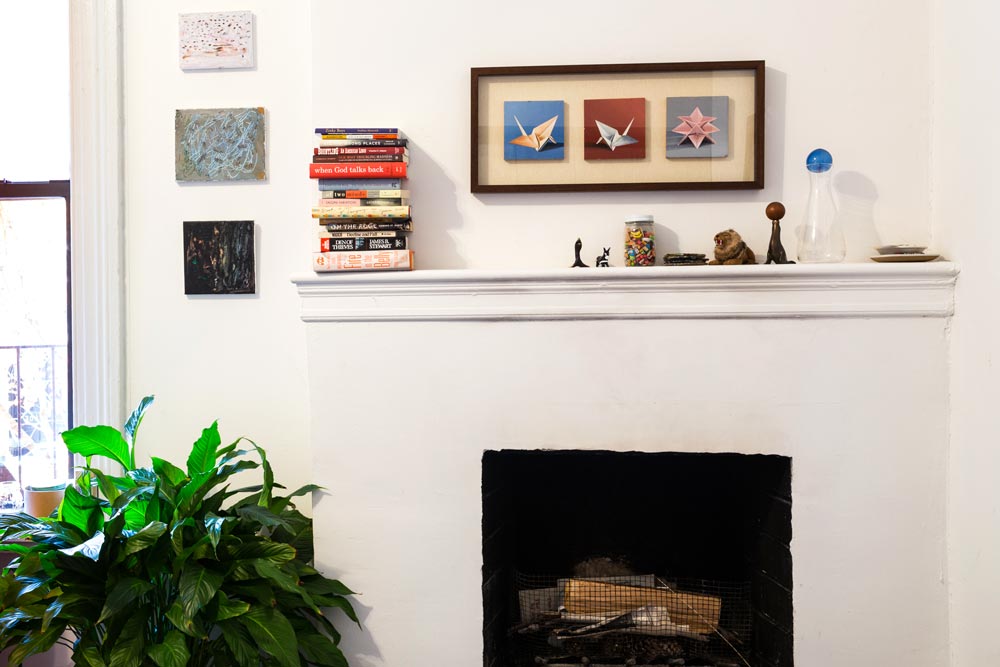Arugula, Pistachio Nuts and Anchovy
Alice Gregory’s Arugula, Pistachio and Anchovy Salad
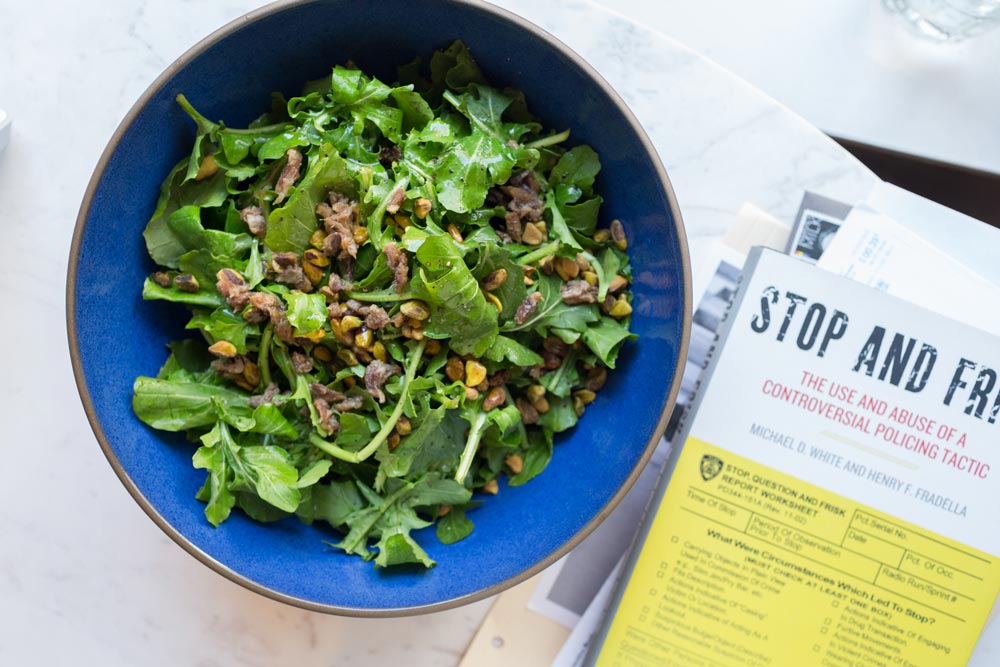

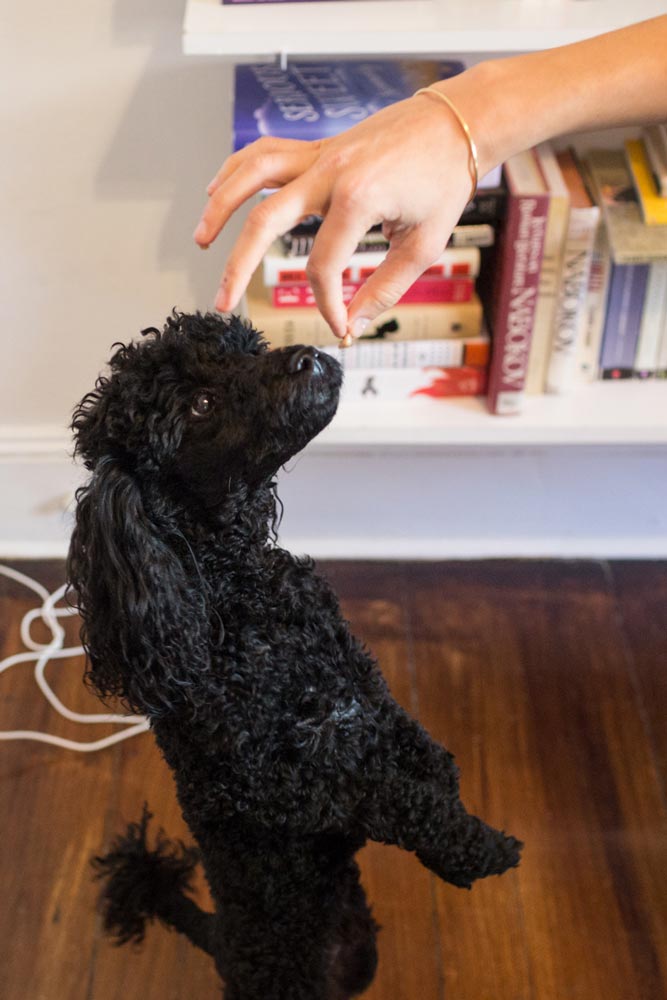
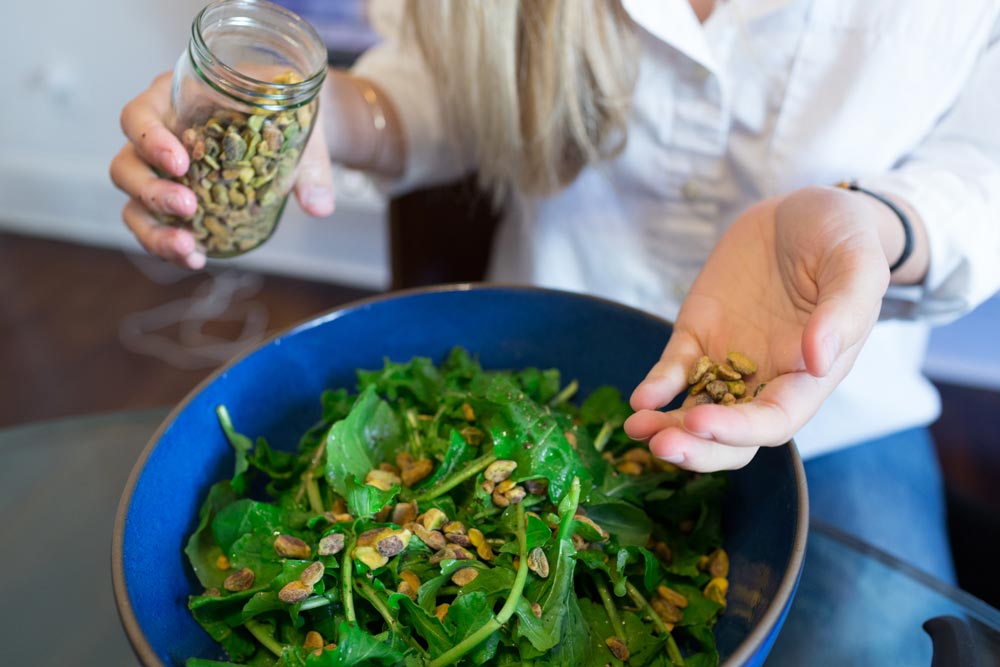
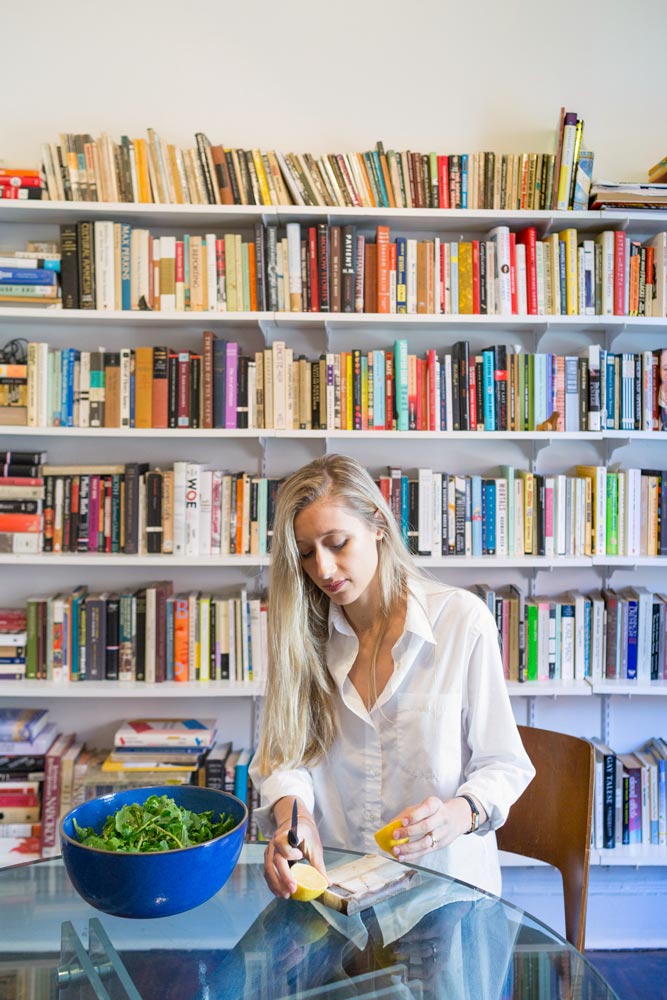
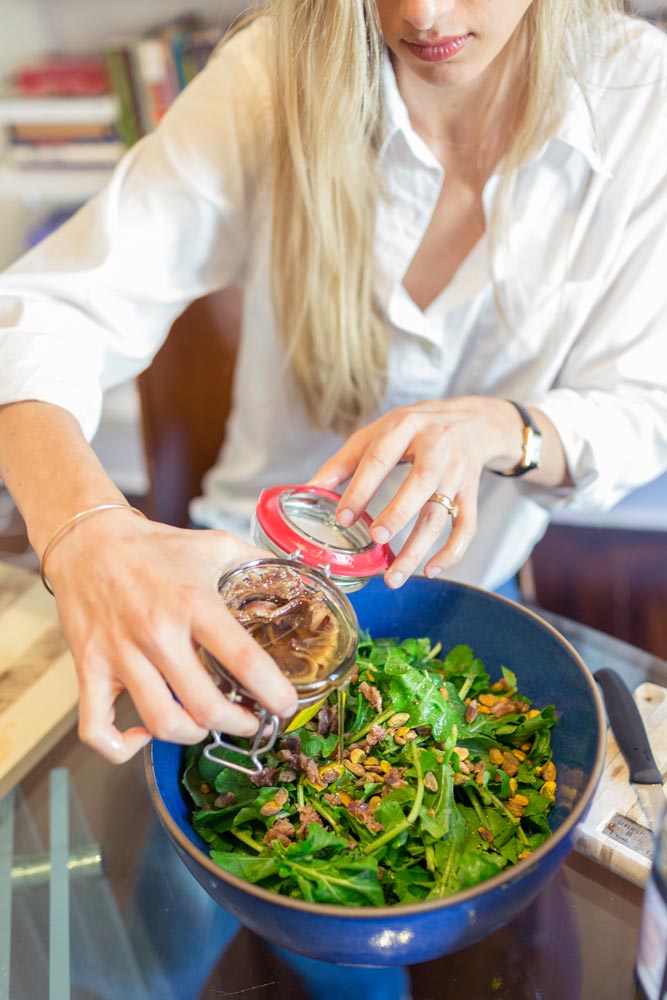
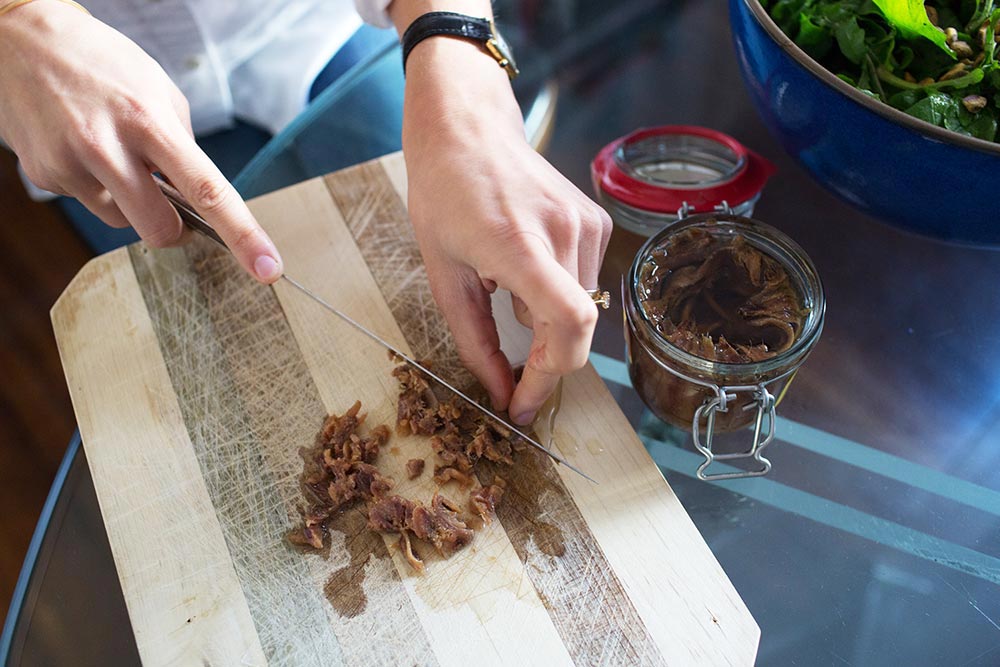
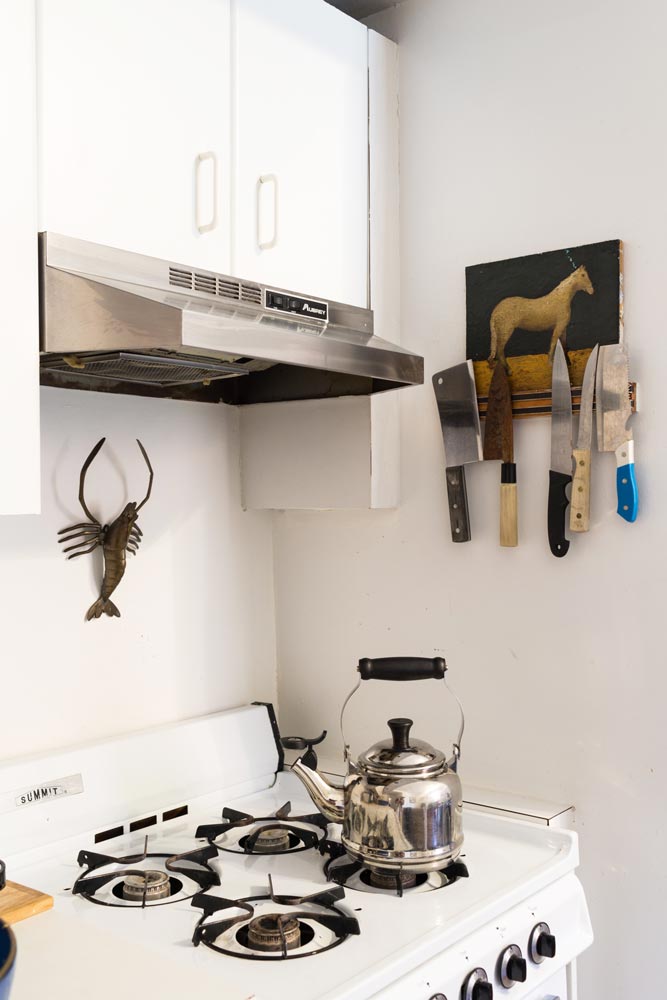
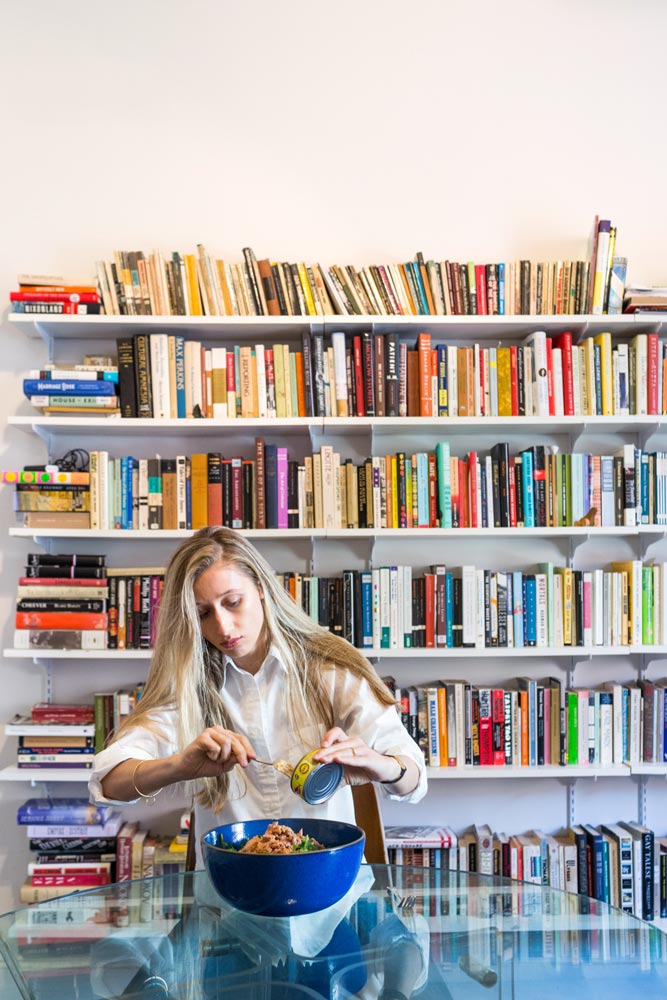
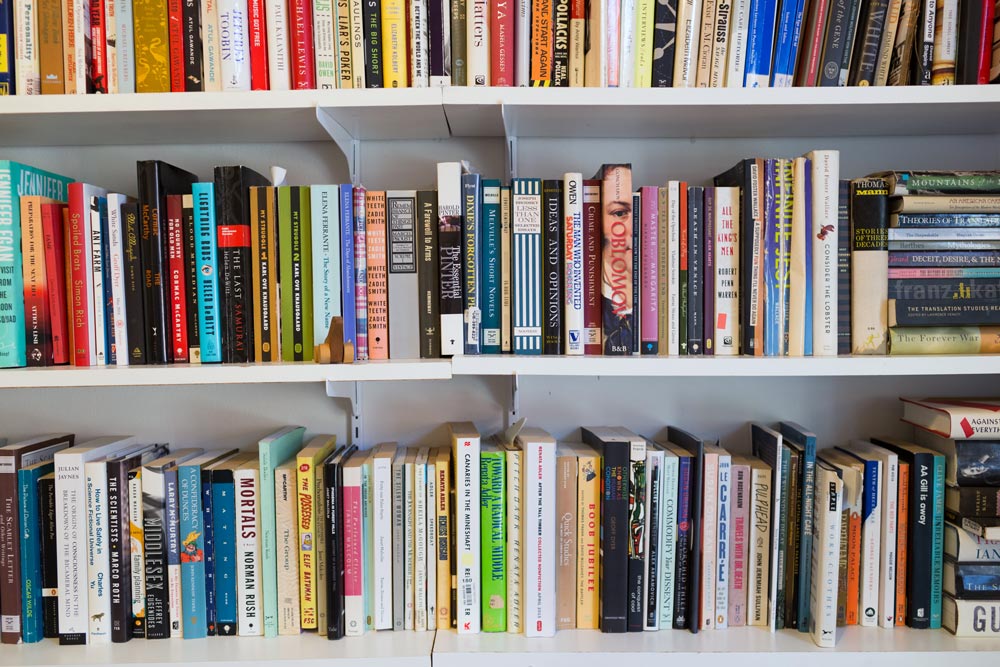
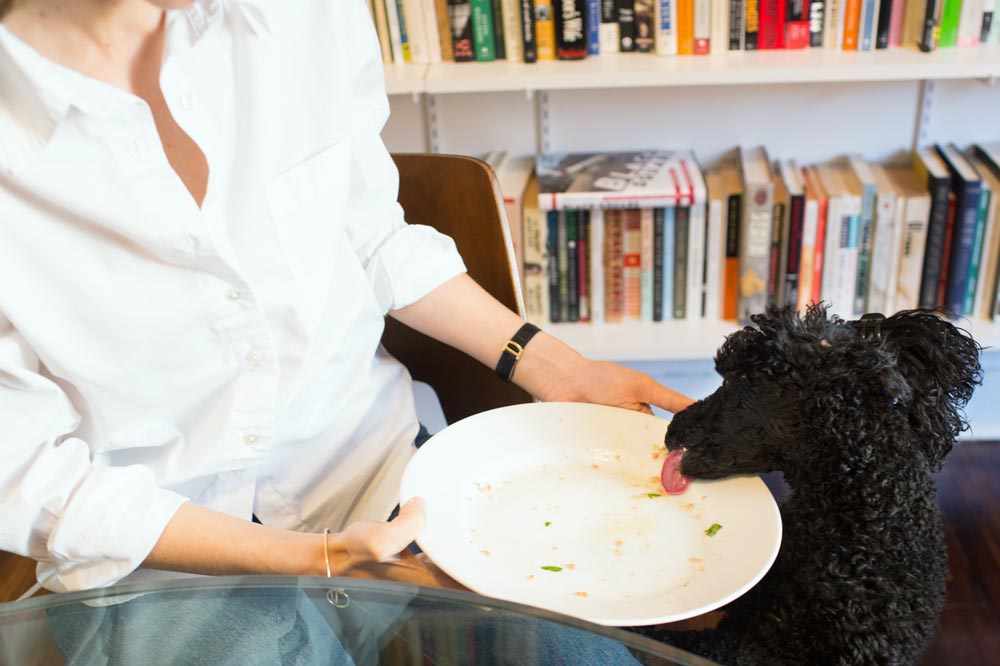
POSTED UNDER
- Brooklyn,
- new york,
- Year-Round
INGREDIENTS
- anchovy,
- arugula,
- pistachio nut
NOTES
This is Alice’s go-to salad, her easy weekday lunch, a recipe she learned from her friend Alana Newhouse the editor of Tablet Magazine. As always, buy high-quality anchovies, preferably in a glass jar rather than a tin (the tin leaves behind some metallic taste).
RECIPE
DIFFICULTY
EASY
SERVES
2
PREP TIME
5 MINS
Salad
-
4cupsmature arugula, washed and thoroughly dried
-
2tbsshelled, unsalted pistachio nuts
-
sea salt and cracked black pepper to taste
Dressing
-
1lemonjuiced
-
1/4cupextra virgin olive oil
-
6oil-packedanchovy fillets
POSTED UNDER
- Brooklyn,
- new york,
- Year-Round
INGREDIENTS
- anchovy,
- arugula,
- pistachio nut
A great writer can make you feel as if you’ve known the author all your life. You understand what makes them tick, why they ask the questions that they ask, and what motivates them to dig deeper into a given topic. I think I knew Alice Gregory long before we ever met.
Alice and I were lucky enough to be included in an experimental women’s writing group that began in 2012. The group was dubbed The Slow Interview, and it was the brain-child of palliative care physician and all-around exceptional human, Rachael Bedard. Rachael had assembled a motley crew of women living all over the world. Some of us are artists and academics, some were psychiatrists, social workers, opera singers, or, in Alice’s case, professional writers.
Each month, Racheal sent a prompt via email to the group, a question that was fundamental, essential and provocative: What is your relationship to money? Talk about something you’ve learned/how you’ve changed/what has happened to you in the past year. Rachael organized our replies and flooded our inboxes with the most highly anticipated mail any of us received on a regular basis. As our respect and admiration for one another exceed any of our expectations, the caliber of the writing did too (a whole bunch of overachievers, I think we were all scared shitless to let the coven down). The responses were deeply personal, introspective, and in my own case, profoundly therapeutic. It was in this time period that I had made a 90° turn in the art world and decided to start Salad For President, and I’m not sure I could have done it without this undercurrent in my life at that time.
The Slow Interview has never met in person, but after reading two of Alice’s recently published articles in T Magazine, I decided to reach out to tell her how much enjoyed reading her work in print. So, we got together for a salad in her Brooklyn apartment, where we talked about what it means to be a journalist, nude bathing and our shared love of the Mexican modernist architect, Luis Baragán. (Alice wrote one of the best New Yorker articles I read this year, an investigation into Barragán’s contested archives. Read it!)
Alice Gregory in Her Own Words
Julia Sherman: Let’s talk about the late Luis Barragán. Your portrayal of him makes me desperately sad that I will never meet him myself. Everything from the melon drizzled with sherry, to his cashmere sweaters. In writing this kind of profile, do you fall in love with your subjects? How do you go about painting a picture of a person you’ve never met?
Alice Gregory: Barragan was perhaps more lovable than most profile subjects, and I’m sure the fact that he wasn’t alive to try and retract quotes and argue with characterizations endeared him to me even more. But yes, I definitely fell for him and had lots of fun trying to reconstruct his life. It was the closest I’ve ever come to playing biographer and I found it far more enjoyable than I would have ever expected. Part of the work though requires a certain amount of comfort with the fact that of course you aren’t getting it right: you’re painting a portrait of a person who isn’t there to correct you or guide you; the tools are your disposal are in a sense arbitrary: old newspaper articles, the second-hand memories of former colleagues, etc. I hope I was accurate, and I heard from people who knew him who said I was, but who knows.
JS: I wonder, have you ever been sent on an assignment only to find out that the story you were pursuing just wasn’t really there? Or, is there always a story to be told? Are your expectations always shifting?
AG: Oh, yeah, all the time. I often find myself attracted to places and people who turn out to be sort of plotless, for a lack of a better word. I try to do enough legwork up front to minimize the chances of being disappointed though, mostly for financial reasons.
JS: Oh man, now I have a new fear: to be plotless! You recently wrote about the pleasures of nude bathing in Germany. I wondered if you disrobed for the sake of the story? Do you find yourself taking part in activities that you wouldn’t otherwise partake, in the name of first-hand experience? I so, what are some examples?
AG: Well everyone else there was naked (and old), so I likely would have disrobed regardless, but I definitely wouldn’t have gone to an East German beach if it weren’t for the story. The main reason I do what I do is that I don’t trust myself to be interesting on my own. If left to my own devices, I’d just stay home and see like six people per week, max. This job makes me go places I wouldn’t otherwise go, and talk to people I wouldn’t otherwise talk to. I have lots of friends with “normal” jobs for whom it comes really naturally to eat at out-of-the-way restaurants or go upstate for the day to some pop-up museum they read about or spend a whole Sunday with a strange person they happened to meet on a train. I’m just not like that, and am perennially dissatisfied that I’m not. So this is sort of a way of getting paid to fix my personality.
JS: That brings me to my next question, which was how we indirectly met, through a collective writing project called The Slow Interview. I wonder if as a writer, you have participated in similar writer’s groups, and what you think made that one so successful? Was that writing as therapy?
AG: No, never! And I loved it so much. I think The Slow Interview was successful for a few reasons. It was regular (monthly); it was conceived of and kept alive by a single person (Rachael Bedard); and not everyone who wrote was a professional writer, meaning they didn’t find the prospect of actually doing it tedious– very important!
JS: As a freelance writer working from home, I would love to know, what are your preferred forms of procrastination?
AG: Nothing very inspiring or novel, sadly. I go on long walks while listening to podcasts, I talk to my dog, I read, I watch British crime procedurals, I go on eBay.
JS: (You don’t really have to answer this, but it’s a burning personal question of mine) Does the process of reporting, interviewing and prodding a subject ever leave you feeling opportunistic or exploitative, even when you know you are adhering to common standards of journalistic ethics? I have struggled with this in as a write, but more as an artist, and I am always left wondering if the lines feel as blurry to more professional journalists like yourself?
AG: I think most if not all journalists struggle with this and many frame the writing that comes out of an interview as an inevitable “betrayal.” Sometimes it can feel like one, but more often, for me at least, the discomfort is more visceral *during* the interview than it is after. That feeling of putting so much emotional energy into making an interview feel like a normal conversation, all the while knowing you need to get something very specific out of it. It’s horrifying if you imagine being on the other side. So I try not to.
JS: You mentioned that you never speak to journalists. Why?
AG: See my answer to the question above! I don’t know why anyone talks to journalists– I don’t know why I’m talking to you! Probably because food was involved… xx
